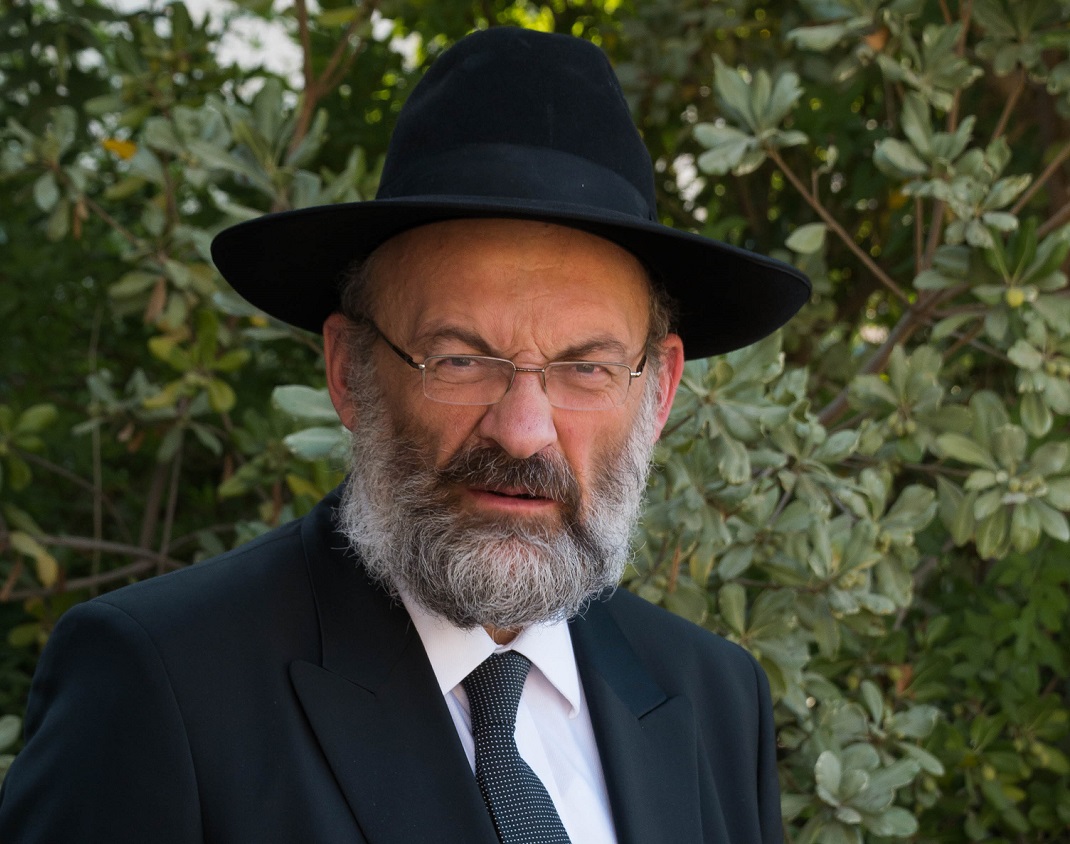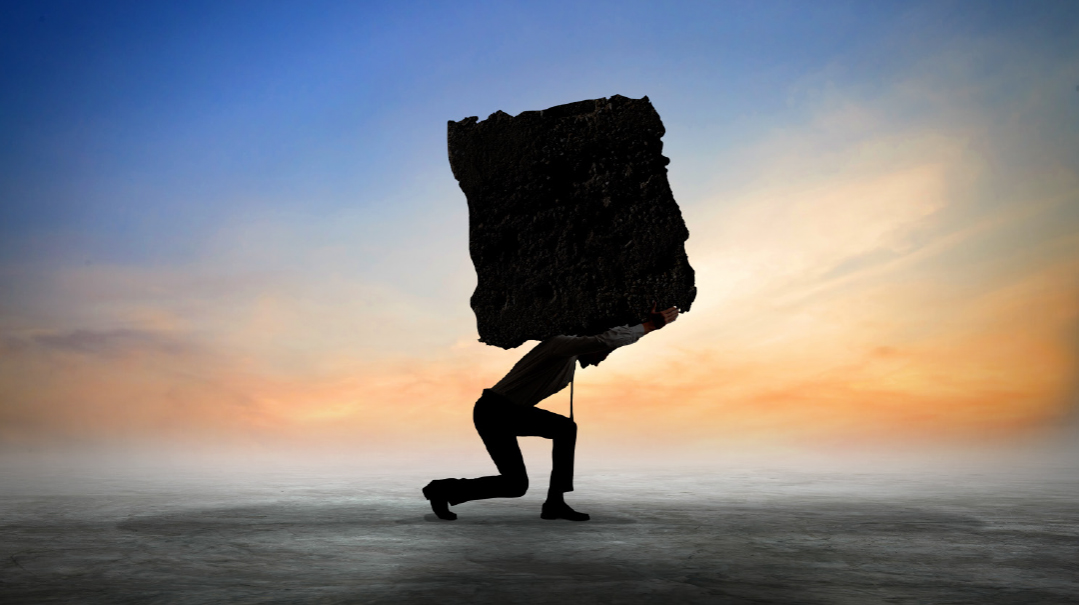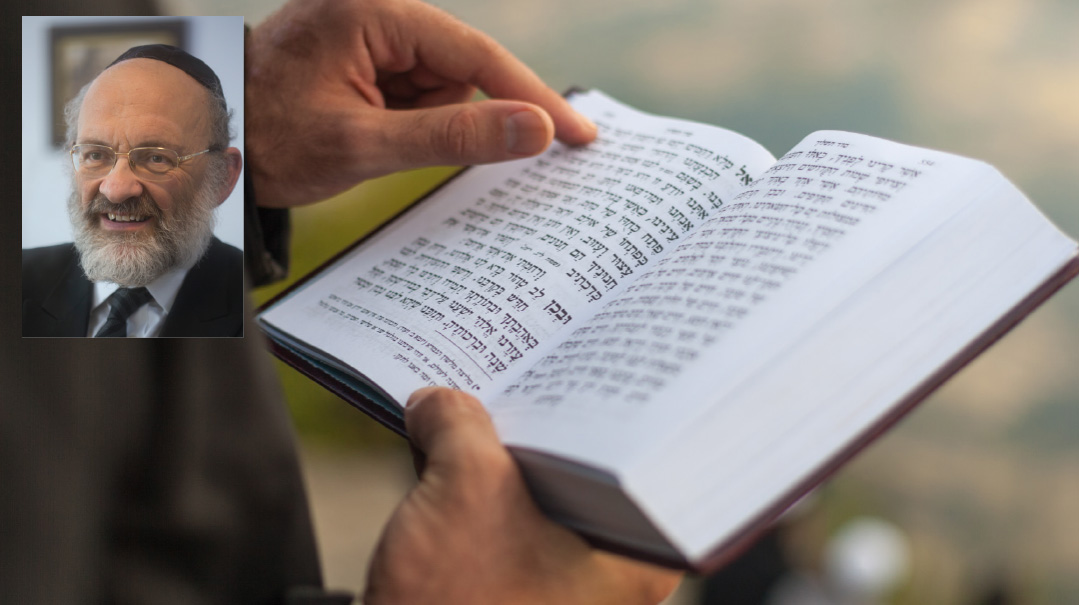Make It Your Business

If avodas Hashem were our business, we would do our best to make it flourish
The Jewish world is reeling from the wave of tragedies that began on Lag B’omer. Even the biggest apikorus would have a hard time blaming it all on chance. Hashem is sending us a wake-up call. We all know that. But what does He want from us?
We all have plenty of shortcomings. Almost every area of our mitzvah performance has room for improvement. But when Hashem takes the lives of dozens of people, it’s not a gentle nudge to make a marginal upgrade. It’s a demand for major change. We have to find the areas in our avodas Hashem that need serious repair, not just fine-tuning.
But even after we identify the problems, just saying “I’m going to work on X” won’t lead to lasting change. We need to make a kabbalah — a concrete, tangible step to address our area of weakness. The yetzer hara wants us to choose something grandiose, because he knows it won’t be sustainable. A good kabbalah has to be small and achievable.
But then we’re back to square one. The point is to really change, not just tweak our halachic performance in one area. How can we give our small kabbalah real transformative power?
On its own, the kabbalah won’t do it. Let’s say we commit to learning an extra ten minutes a day. Lighting the Shabbos candles ten minutes earlier. These are beautiful ideas. But if the kabbalah is just another task to do, another requirement in our individual Shulchan Aruch, it won’t do the job. Of course, we’ll gain an extra ten minutes of learning, another ten minutes added to Shabbos. That’s wonderful. But that won’t necessarily change us.
The issue isn’t what kabbalah to accept. Almost anything can change us. The secret to change is the way we approach our kabbalah. Let me illustrate this point.
What’s the difference between a business owner and an investor? They both put money into a business, and they both want it to succeed. The difference is that the investor doesn’t run the business. He just stands from the sidelines and cheers it on. The business owner, on the other hand, is involved in every detail. He gets down on his hands and knees and works like a dog to make the enterprise succeed. He constantly studies what went well and what didn’t, learning from experience in order to maximize success and minimize failure.
In business, an investor can strike it rich. But in ruchniyus, a passive investor won’t get very far. In the business of Torah, we need to be the owner. Everyone dreams of being the lucky investor who enjoys high dividends without putting in (much) work. But that’s not what the Torah wants of us. The Torah wants to build us. The goal isn’t just that the mitzvah be performed. Hashem doesn’t need the mitzvah. He wants the mitzvah to build us. For a mitzvah to build us, we have to be totally engaged in it. Each mitzvah corresponds to one of our spiritual limbs. Just as only hard work will strengthen our physical limbs, the same holds true for our spiritual limbs.
Aspiring musicians, scientists, and athletes work arduously to realize their dream. That’s because they make it their business. But more often than not, we don’t see avodas Hashem as a personal endeavor. We see it as the collective duty of Klal Yisrael. Of course, I have my share in it, I invest in it, but it’s not my own business. That’s why we’re always measuring ourselves against others. If we do the same as our friends, we feel respectable; if we do more, we feel commendable.
But every morning in birchos haTorah, we say, “la’asok b’divrei Torah.” We have to “make an eisek” out of Torah; Torah should be our business! If avodas Hashem were our business, we would do our best to make it flourish. Business owners never suffice with equaling the profits earned by other companies. The accomplishments of others might open our eyes to see what we’re really capable of, but it should never set the bar for us to feel we’ve done enough.
Now more than ever, we realize that we need to change. The mitzvos need to change us. And they can, if we approach them the right way. A small kabbalah gives a great opportunity to work on this. It’s not a societal requirement; our friends won’t be applying themselves to the task, or even be aware that we are. We therefore won’t be gauging our success in relation to others. It will be easier for us to view our kabbalah as our personal enterprise. If we work on it consistently and to the best of our ability, we’ll train ourselves to become Torah businessmen, to make avodas Hashem our business. That’s called “making an eisek” out of the mitzvah — making it our business.
Being a business owner doesn’t just require us to work; we also have to think. A business owner constantly studies the ups and downs of his operation and the reasons for them. For us, that means monitoring when our kabbalah goes smoothly, and when it flags. Then we have to identify the reasons. Did it go well today because I was well-rested? Because I enjoyed my learning earlier? Did I botch it today because of external factors, like my location or the people around me? Or because I couldn’t stop thinking about how that jerk dared to criticize me this morning?
If we do that, we’ll improve our performance of the kabbalah, and we’ll learn about ourselves — our strengths, our weaknesses, our middos, what motivates us and what doesn’t. Those lessons will help us a great deal in other spiritual endeavors. But most importantly, we’ll be making mitzvos our personal business.
Our constant work in one area, using our hands and minds to improve our mitzvah observance — that’s what makes us grow, step by step. The daily growth is almost imperceptible, but over time shows its impact. Like a plant that grows cell by cell, but eventually breaks through thick pavement. Mesilas Yesharim says that chazarah and hasmadah — continuous repetition and persistence — are what change us. Rabi Akiva saw how soft drops of water can pierce a boulder when they fall consistently in the same place. If we have a kabbalah that engages body and mind day after day, it will change us.
The fact that we approach one mitzvah with such devotion will spill over to other areas as well. Gradually, we’ll start to make an eisek out of other parts of our avodas Hashem. Becoming a person who makes an eisek out of mitzvos, who sees avodas Hashem as his life, not just meeting requirements — that’s the biggest reward of the kabbalah. That’s how a small kabbalah can change us. That’s how we can answer the wake-up call Hashem has sent us in the last few weeks.
—Prepared for print by Rabbi Eran Feintuch
Originally featured in Mishpacha, Issue 862.
Oops! We could not locate your form.










